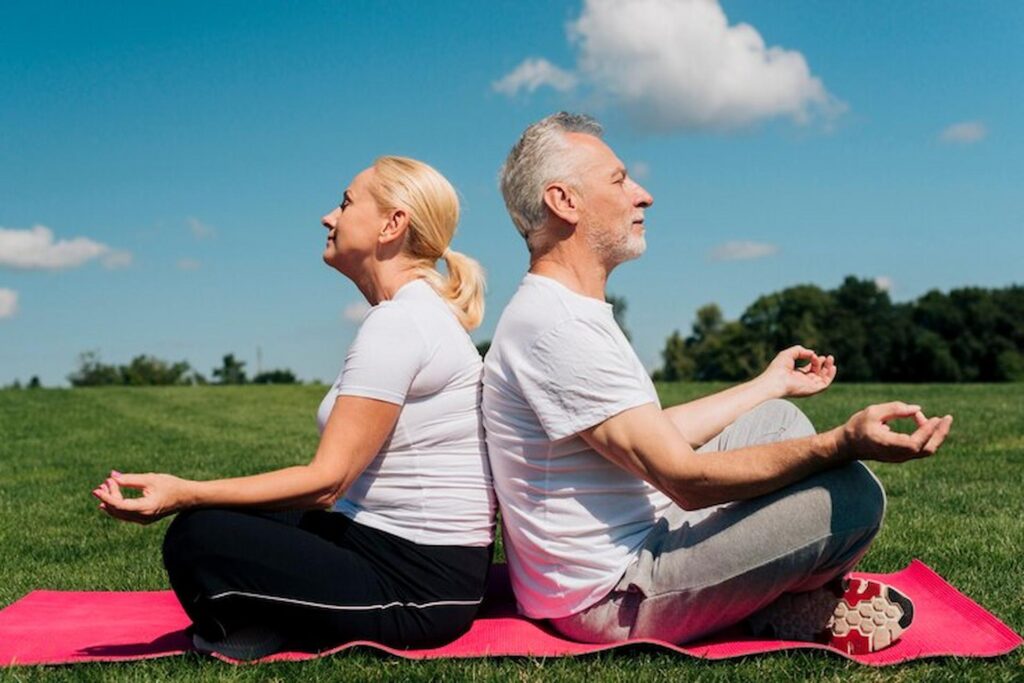As we age, maintaining mental and emotional well-being becomes increasingly essential. For many elderly individuals, transitioning into a care home can bring about feelings of anxiety, loneliness, and stress. However, with the integration of mindfulness and meditation practices, care facilities like Erith Care Home can provide a nurturing environment that promotes calmness and peace for their residents. In this blog post, we will explore the profound benefits of mindfulness and meditation in elderly care, mainly focusing on how these practices are implemented and embraced at Erith Care Home.
Understanding Mindfulness and Meditation
Before delving into their applications in elderly care, it’s essential to grasp the concepts of mindfulness and meditation. Mindfulness involves paying attention to the present moment without judgment and with openness and acceptance. On the other hand, meditation encompasses various techniques to cultivate awareness, concentration, and inner peace.
At Erith Care Home, mindfulness and meditation are not viewed as mere relaxation techniques but as powerful tools for enhancing the overall well-being of elderly residents. Through mindfulness exercises and guided meditation sessions, residents are encouraged to connect with their inner selves, alleviate stress, and cultivate a sense of tranquillity.
The Benefits for Elderly Residents
The ageing process often comes with challenges, including health issues, loss of independence, and social isolation. However, integrating mindfulness and meditation into daily routines can benefit elderly individuals at this Care Home.
First and foremost, these practices promote emotional resilience, helping residents navigate feelings of loneliness and anxiety more effectively. By fostering a sense of inner peace, mindfulness and meditation empower residents to cope with the changes and uncertainties that come with ageing, thereby improving their overall quality of life.
Furthermore, mindfulness and meditation have been shown to have numerous physical benefits, such as reducing blood pressure, alleviating chronic pain, and boosting the immune system. For elderly residents with age-related health issues, these practices serve as complementary therapies supporting their holistic well-being.
Implementation at Erith Care Home
At this Care Home, mindfulness and meditation are carefully considered and expertly integrated into the daily routine. Trained staff members lead regular meditation sessions tailored to residents’ needs and preferences. These sessions may include guided breathing exercises, gentle stretching, and visualisation techniques to promote relaxation and inner peace.
Additionally, mindfulness practices are woven into various aspects of daily life at the care home, from mealtimes to recreational activities. Whether it’s mindful eating exercises or nature walks infused with conscious awareness, residents are encouraged to engage fully in the present moment, fostering a deeper connection with themselves and their surroundings.
The supportive environment at this Care Home encourages residents to explore mindfulness and meditation at their own pace, without pressure or expectation. By offering opportunities for self-reflection and personal growth, the care home empowers residents to embrace these practices as valuable tools for enhancing their well-being.
Testimonials from Residents and Staff
The accurate measure of the impact of mindfulness and meditation at Erith Care Home lies in its residents and staff members’ experiences and testimonials. Many residents have reported feeling more centred, calm, and content since incorporating these practices into their daily lives. The benefits are tangible and profound, ranging from improved sleep quality to greater emotional resilience.
Staff members, too, have witnessed the transformative power of mindfulness and meditation in elderly care. They attest to the positive shifts in residents’ demeanour, noting increased levels of relaxation, engagement, and overall well-being. By fostering a culture of mindfulness within the care home, staff members can support residents in their journey towards greater peace and fulfilment.
Conclusion
Mindfulness and meditation are pivotal in promoting calmness and peace in elderly care at this Care Home. By embracing these practices, residents are empowered to cultivate inner resilience, navigate life’s challenges gracefully, and embrace each moment with presence and mindfulness. Through staff members’ dedicated efforts and residents’ willingness to explore these practices, this Care Home exemplifies a holistic approach to elderly care that prioritises the well-being of the mind, body, and spirit.
In a world where older people often face neglect and isolation, institutions like this Care Home are beacons of compassion and innovation, offering a nurturing environment where residents can thrive in their later years. As we continue to recognise the importance of mental and emotional well-being in ageing populations, let us strive to integrate mindfulness and meditation into elderly care settings, fostering environments of tranquillity, connection, and peace.
At this Care Home, mindfulness isn’t just a practice—it’s a way of life, enriching the lives of residents and staff alike, one mindful breath at a time.
Read more: https://logofreetv.org/major-advantages-of-telehealth-consultations-for-patients

